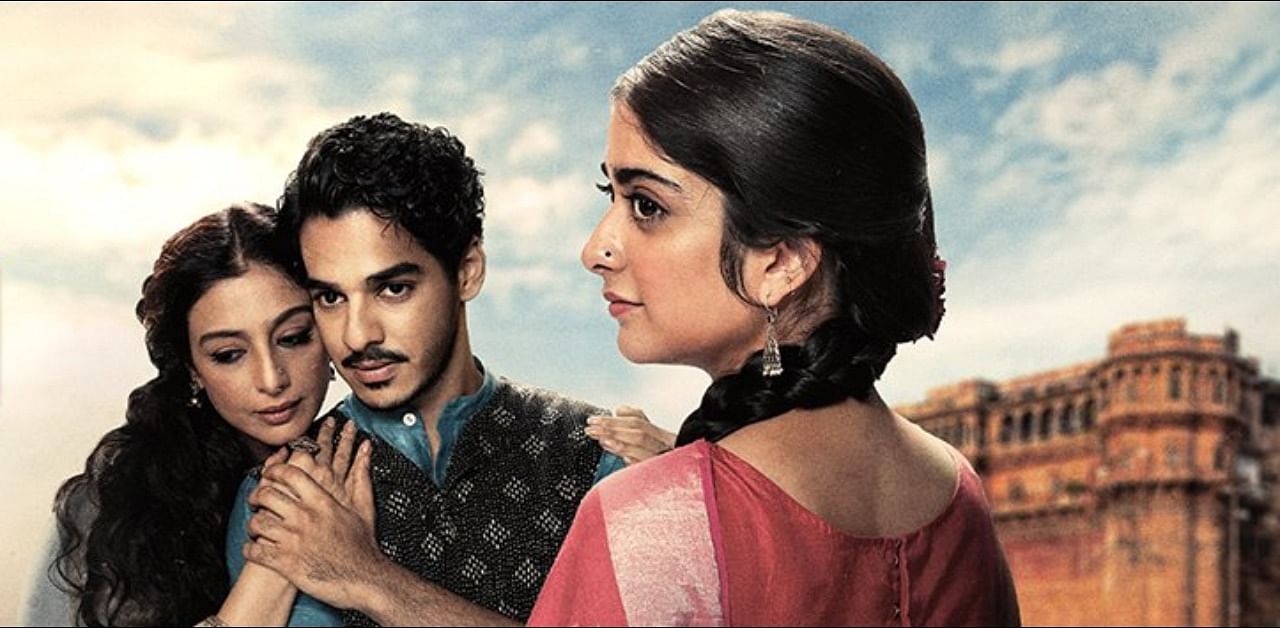
In recent weeks, A Suitable Boy has been in the spotlight. Much ink has been expended over the show’s brevity, whether or not it was true to the printed word, its costumes, acting and much else. While many things about the show deserve praise, the stilted dialogue that sounded unnatural and grating to the ears has been universally panned. Something about it didn’t quite ring true. It sounded inauthentic and fake.
Should the dialogue have been done differently? What were the possibilities? Didn’t the fact that it was an Indian show shot entirely in English compromise it from the beginning?
Also, could it be that the dialogues of A Suitable Boy do not lend themselves to being used in everyday conversation which is something we have come to expect from the visual medium? Its convoluted sentences written in the Queen’s English do not suit everyday banter and hence, the chorus of disapproval.
These kinds of questions lead one to ponder over the role of dialogue in films and TV shows and what works and what doesn’t. And what were the unseen elements that influenced language, diction and the other elements that went a long way in endearing a production to its viewers?
Dialogue writing as an art form
In the documentary, In Search of Guru Dutt (1989) by Nasreen Munni Kabir, writer Abrar Alvi holds forth on how in the movie Mr. and Mrs. 55 (1955), he and Guru Dutt pioneered a zingy way of dialogue-writing and delivery that brought a certain deft touch to this hitherto ignored aspect of film-making.
Two scenes stood out in this respect. In one scene, Lalita Pawar asks Guru Dutt, ‘Kya communist ho?’ and pat comes the reply: ‘Ji nahin, cartoonist.’ This is as Alvi says ‘a phonetic punning on the words’ since a cartoonist could well be a communist, but in writing the dialogue in this manner, the scene acquired a certain everyday feel to it that movies of that time lacked.
Another scene had Guru Dutt mouthing the words ‘Ji haan’ to a series of questions that Pawar fired at him, her fury mounting as he used the same two words, but with subtle differences in tone, to respond.
This was dialogue writing as an art form that used humour and creativity to convey a range of emotions.
A few years prior to Mr. and Mrs. 55, an up and coming writer in the Tamil film industry by name M Karunanidhi had penned powerful dialogue for the movie Parasakthi (1952). This film was a vehicle for the propagation of the Dravidian ideology that questioned the existence of God, railed against caste injustices and encouraged individuals to oppose the establishment. Here, dialogue was used to provoke and educate.
In the ‘70s, especially in the Salim-Javed movies that created the persona of the ‘Angry Young Man’, ‘dialogue-baazi’ often became the device for establishing the brooding persona of Amitabh Bachchan, who literally and figuratively towered over these productions. In turn-of-the-century movies like Satya and Company, a very specific form of the Bambaiyya crime world argot was used, peppered with unusual terms like ‘khoka’ (a crore) and ‘tapkana’ (to kill) to evoke that dark world. This was a stab at authenticity.
Remnants of the colonial mindset?
Which brings us back to the world of A Suitable Boy. Among the things the makers have put out in press interviews are that the accent (and by extension, the dialogue) was done the way it was to reflect that time period. Having determined that a ‘la-di-dah’ accent was necessary to evoke that time, the dialogue was probably then written to suit the accent. In some sense, perhaps the right decision. If the accent had to be so posh, it would have been unimaginable to hear it mouth Hinglish.
Or was it the other way around? Dialogue first, ergo the accent. It doesn’t actually matter. Either way, perhaps what should be up for questioning is the logic itself. By the dictates of this logic, a movie like Shakespeare in Love had to use Shakespearean English to reflect the time period. But it didn’t. With a few archaic expressions, period costumes and sets, the time period was depicted well. Similarly, The Godfather, set in a very particular Italian-American milieu managed fine by retaining its peculiar accents and intonations. It did not seek to use ‘standard American’ (if such a thing even exists).
Why then was it felt necessary to have Indians of the '50s talk with strange accents and in full sentences to 'reflect that time period'?
What are the larger forces at play in the minds of the film-makers, scriptwriters and voice coaches? Is it the old colonial mindset that has prompted this unusual turn? Or is it the need to tailor the content to the preference of British audiences (since the show was for a British audience originally) even if the depiction that emerges is a little off? And while it might sound unkind to say it, given that the idea of the British Empire is still popular in Britain despite evidence about how it ravaged Asia and Africa, was this series that unabashedly evoked the tone of Empire, merely pandering to that lowest common denominator?
A confident nation produces confident artistes who find creative ways to depict historical circumstances without slipping into caricature and lampooning. It is precisely in this space that the series has fallen short. That it was felt necessary to evoke the period mood through resorting to hackneyed accents and funny-sounding dialogue demands interrogation. It is of a piece with that oh-so-persistent longing for an Oscar to ‘legitimise’ the world credentials of an Indian film.
The home truth that A Suitable Boy has delivered is this: The sun still shines on aspects of the Empire.
(Karthik Venkatesh is a Bengaluru-based editor and writer)
Disclaimer: The views expressed above are the author’s own. They do not necessarily reflect the views of DH.